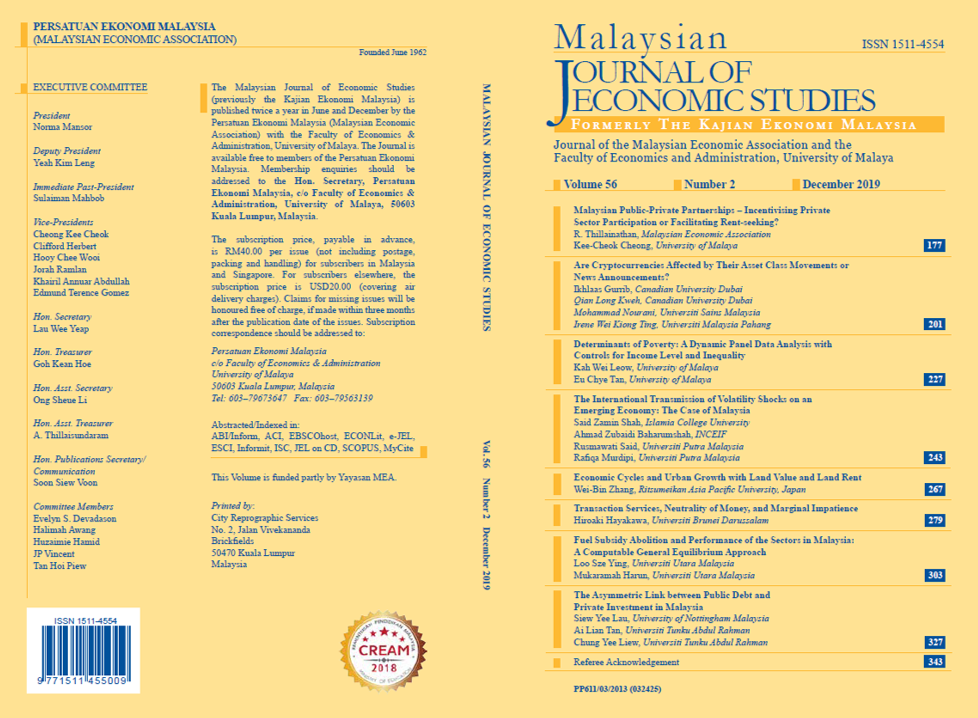Transaction Services, Neutrality of Money, and Marginal Impatience
DOI:
https://doi.org/10.22452/MJES.vol56no2.6Keywords:
Recursive preferences, transaction services, marginal patience, optimum quantity of money, hyperneutralityAbstract
This paper examines the issues of neutrality and optimum quantity of money in the context in which transaction services of money are imputed and enter a utility functional of a recursive class. We show that the results are diametrically different from the case of money in the utility function. The reason is due to the fact that in response to changes in nominal interest rates, agents adjust their real balance holdings hyperbolically to keep the marginal rate of substitution between real balances and consumption unitary. As of steady state, we show that capital intensity, consumption, transaction services, the rate of time preference, and agent’s welfare are all invariant to monetary expansion, which is termed hyperneutrality. This strong neutrality holds whether the marginal impatience is increasing or decreasing in consumption and real balances. Friedman’s argument for the optimum quantity of money and the optimum money supply rule is, therefore, no longer applicable. To distinguish transactions services from money accords with Walras’s crucial distinction between money as a stock and its services of availability as a flow.

